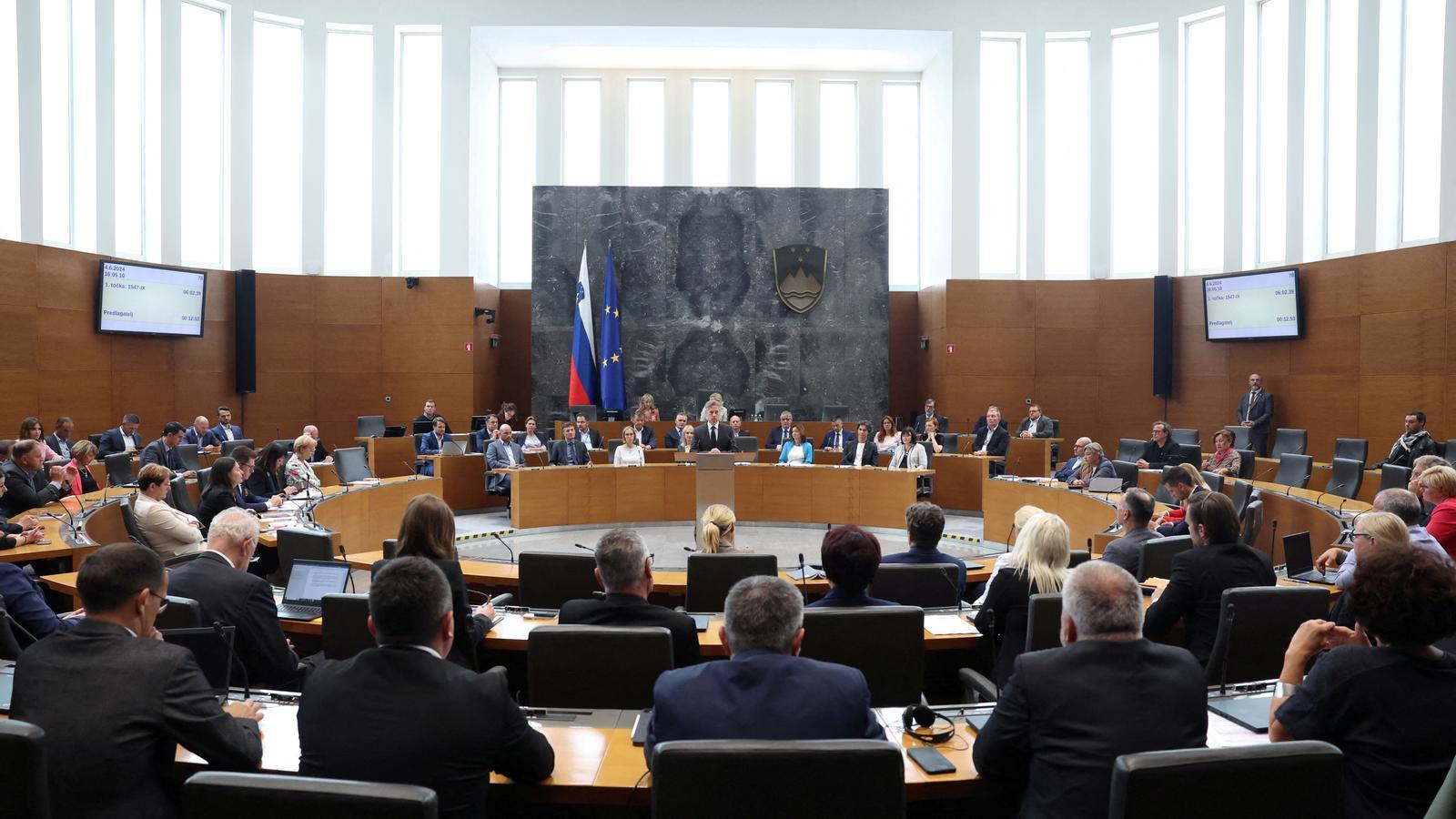Slovenia bans arms sales in Israel
Ljubljana, which has acted as a spearhead within the European Union in putting pressure on Tel Aviv, justifies the decision by the denial of humanitarian access to Gaza.


BarcelonaSlovenia has imposed an embargo on arms exports, imports, and trafficking to Israel. The measure, announced Thursday evening by Slovenian President Robert Golob, the liberal, after a government session, makes the Balkan country the first in the European Union to act so forcefully against Tel Aviv. The Slovenian government's ban includes "the export and trafficking of arms and military equipment from or through Slovenia to Israel, as well as imports from Israel to Slovenia," with the exception of equipment needed by Ljubljana for "security and resilience."
Golob justified the decision by Israel's "total denial of humanitarian access and the deliberate prevention of basic conditions for survival" in Gaza and lamented that the European bloc has been "unable to take concrete measures due to internal disagreements and disunity." "Under these circumstances, every responsible state must act, even if this means getting ahead of others," the leader told the Slovenian newspaper. Delo.
The move is the culmination of a series of warnings Ljubljana has made to Israel demanding an end to the humanitarian blockade and a ceasefire in Gaza. It recognized the state of Palestine in June of last year and, just two weeks ago, declared personae non-grata Two ultra-Israeli ministers—Israeli National Security Minister Itamar Ben Gvir and Finance Minister Bezalel Smotrich—were arrested for making "genocidal statements" and inciting violence against Palestinians. At the time, Foreign Minister Tanja Fajon explained that the decision was taken after the fact due to the lack of joint action by EU foreign ministers against Israel over allegations of human rights violations.
The Slovenian government—made up of environmental liberals, social democrats, and eco-socialists—is still preparing new measures against the Israeli government in the coming weeks, which, diplomatic sources told ARA, would involve further restrictions on trade ties with Tel Aviv if they do not improve. The decision to ban arms sales was instigated by liberal President Robert Golob, who has always been very vocal against the violence inflicted by Israel on the Palestinian people, with the intention of paving the way for other EU states that want to join them.
Pioneer in sanctioning Israel
Slovenia is acting as a spearhead within the European club in reprimanding Tel Aviv, and countries such as Belgium, the Netherlands, and Spain are following suit. In fact, the arms embargo on Israel has also begun its parliamentary process. in the Spanish Congress, where it was admitted for processing at the end of May. Unlike Slovenia, which approved the embargo through executive action in the Council of Ministers, Sánchez has so far opted for the parliamentary route, avoiding implementing it by royal decree, as some civil sectors have demanded.
Following the proliferation of shocking images of malnourished children in Gaza, international pressure against Israel has grown, which has resulted in a joint letter from 28 states demanding a ceasefire and the threat by France, the United Kingdom, and Canada to recognize the Palestinian state in September. The debate between countries that want more severe restrictions on Tel Aviv and those that do not has also intensified in the European Union. This has been the heart of the discussion on Israel's association agreement, which member states have reviewed in recent weeks, despite not reaching very ambitious conclusions. While during the review of the agreement Israel was found to be violating human rights in Gaza –which criticized the blockade of humanitarian aid and also the violence of Israeli settlers in the West Bank–, EU diplomacy, led by Kaja Kallas, refused to suspend him. Brussels, however, has proposed the partial suspension of the participation of Israeli entities in the European Horizon research programme.
Among the partners that are most opposed is Germany., which is Israel's main European arms supplier. Berlin has tried to downplay any ceasefire calls from Brussels and has repeatedly pressured Europe not to rescind the association agreement with Israel, which gives Tel Aviv preferential trade treatment despite violating international law.
